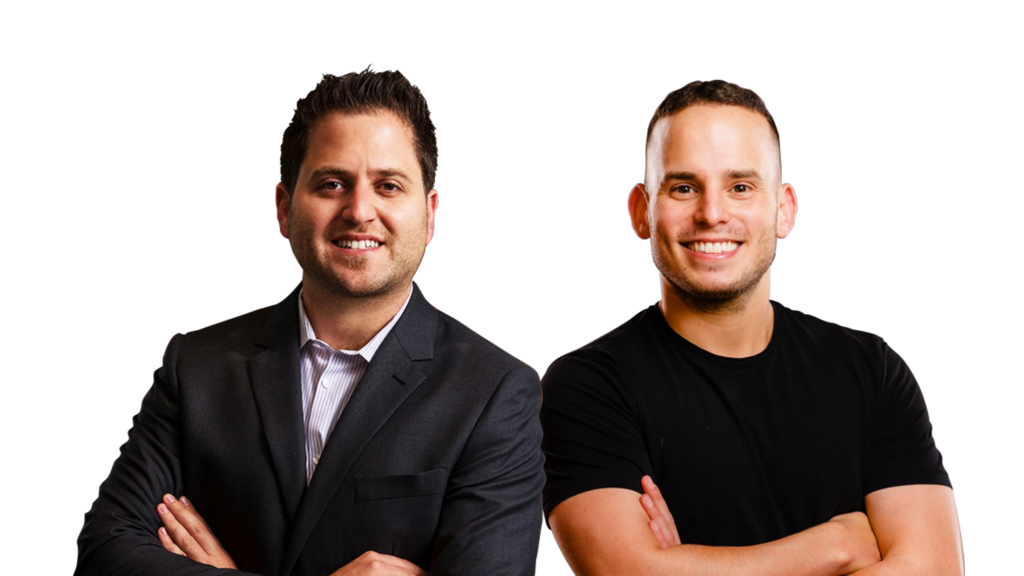
2022 VC Survey
“All of us were winners this year,” says Fusion
Don’t believe the hype - we are seeing normalization despite the downturns this year, say Yair Vardi and Guy Katsovich.
“Generally speaking, we think ironically this year was better for the startup eco-system than 2021 and 2020,” say Fusion executives Yair Vardi and Guy Katsovich. “While most investors and tech journalists like to highlight the downturn in valuations, what we really see is the ‘normalization’ of internal talk between money managers and founders.”
Read every interview in our ongoing project
Reading the news might make it feel like it’s all doom and gloom, but Vardi and Katzovich argue that the fundamentals and metrics of startup companies are once again spoken of. “More people are naturally more aware of their importance – this is VERY good for the eco-system, as it makes sure that we might see less high-growth-based startups but more startups that have a valid, ROI-positive based business behind them,” they continued. “For the longer term and for Israel’s ability to create companies that will be long-lasting, this is a very good development.”
Name of fund/funds: Fusion
Total sum of fund: $20m
Partners: Yair Vardi, Guy Katsovich
Notable/select portfolio companies: DigitalOwl, Base.io, Agora, Uniper, Innplay Labs, Hoopo, SetPoint
Fusion’s Yair Vardi Guy Katsovich joined CTech for its 2022 VC Survey to share some optimistic predictions on the year ahead.
If 2020 was the year of the pandemic, and 2021 was the year of records, how would you define 2022 in the VC sector?
2022 was the “wake-up call” year. This year, a lot of inexperienced money managers (fund managers and angels) as well as founders, realized that every bull market has an end; and the deep connections between interest rates, public markets’ trends and multiples, and how all of them connect to private, venture-backed related investments.
Who are the big winners of 2022 and why?
All of us: Generally speaking, we think ironically this year was better for the startup eco-system than 2021 and 2020. While most investors and tech journalists like to highlight the downturn in valuations, what we really see is the “normalization” of internal talk between money managers and founders. Fundamentals and metrics of startup companies are once again spoken of, and more people are naturally more aware of their importance – this is VERY good for the eco-system, as it makes sure that we might see less high-growth-based startups but more startups that have a valid, ROI-positive based business behind them. For the longer term and for Israel’s ability to create companies that will be long-lasting, this is a very good development.
Who are the big losers of 2022 and why?
Startup founders who raised very big rounds in 2021-2022 (no matter if you call it mega-seed, A, B, or whatever letter of your choice) on story and momentum but without demonstrating the fundamental economics of the business. They now need to thrive for some kind of product market fit, while time is running out and metrics should (hopefully) be in line with the huge valuation they got 1-2 years ago.
What do you expect in the VC sector in 2023?
Seed investment is going to stay steady (mainly some of it will be deployed at a slightly slower pace), while “trivial” deals will keep having multiple VCs to choose from. “Pure” pre-Seed deals and other investment vehicles might slow or at least be much pickier. A lot of “new angels” that made their money in the public market/working in tech companies that went public are now less liquid, and will be less tend to invest in opportunistic deals.
What global processes will affect (positively and negatively) the Israeli market?
We're de facto in the midst of a recession / downturn of the global economy. Just looking into your savings & public investments portfolio - Everyone feels "poor", especially in comparison to their situation in 2021.
We work under the assumption that private angel money is out of the game for the next two years. If "friends & family" rounds in 2021 could be easily oversubscribed to $1.5-2 million rounds with many 50-100K checks participating (sometimes with very friendly terms - uncapped notes/discounts), the party is over. Pre-seed / "Friends & Family" rounds size were cut in 50%, back to $250-$750K (like a few years ago).
How should different companies prepare for the coming year?
We are not growth experts so wouldn’t want to give advice to companies we are inexperienced in working with. We can say that we recommend most of our new portfolio companies – and we always said that even before the current market recession - to focus on getting business traction and proving their hypothesis. Everything else (like fundraising) is a trailing metric to that one.
What will be of the dozens of unicorns born last year?
This is an interesting question. We honestly don’t know, but can assume that some will lose their status and even change their course of business. And others that have strong fundamentals will keep on growing. Better to ask the companies’ stakeholders to get a (un)biased opinion.
What sectors will experience an acceleration in VC investment and which will suffer a slowdown - and why?
In terms of verticals - We at Fusion love vertical SaaS and consumer, and we've backed teams across the board in a variety of industries: Enterprise Software, Gaming, Wellness, Education, Insurance, Climate Technology, Future of Work, Real Estate, and Mobility to name a few. The volume of deals will go down, and the investment process already got back to 1-3 months (from 1-3 weeks in 2021), but great teams that tackle big markets should be able to find the right VC partner for them. A lot of new firms still have money to deploy, and the VC industry is more capitalized than ever before. As mentioned, the threshold for investment is higher and companies will be judged more on execution, metrics, and healthy financials than just big visions and growth.
We at Fusion are doubling down and plan to increase our investment volume. We already invested the first check ($150,000) in over 20 startups in 2022. We expect to invest in 60-70 more companies throughout 2025.
HR: Do the layoffs, those that have already happened and those that are coming, help to fix in any way the distress experienced by companies over the past 2-3 years?
We're pre-Seed investors and typically work with founders that bootstrap their operations from day 1. We never invested in a company that produced DJ parties in Greece but met a few founders who thought twice before leaving one company to follow their dreams and launch a startup. In 2022, it's an "easier" decision to follow your dream and start something new or join an early-stage venture, when the plain field in terms of perks is more even, and when your options in a growth/public company aren't worth as much...
Zoma, apprentAI - Fusion’s notable portfolio companies
Zoma
B2B Enterprise software - Focus on the IT services market
Founders: Shachar Kaufman & Batel Shoval
Founding year: 2022
Number of employees: 7
apprentAI
SaaS B2B - Legal Tech, apprentAI develops a platform that generates actionable legal insights for law firms and legal departments.
Founders: Adv. Or Bar, the CEO is an experienced litigation lawyer and the CTO, Ph.D. Matan Ben Zion is a physicist with 12 years of R&D experience.
Founding year: 2021
Number of employees: 6
